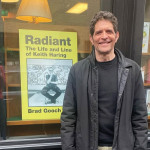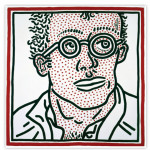“ ’Abstinence only’ doesn’t work!” protesters chanted Monday morning as police dragged 12 handcuffed AIDS activists through the Washington, DC lobby of the Family Research Council (FRC), an influential think tank that promotes abstinence-till-marriage programs. “Don’t censor science!” read protesters’ signs. The 12 arrests this morning—followed later in the afternoon by dozens more at the White House—came on the third of the Four Days of Action, a grassroots spectacle of crosstown marches, political rallies and prayer meetings under the banner of the Campaign to End AIDS (C2EA).
It had been a warm, clear weekend in the capital, and pretty much everything had gone off as planned, starting with the convergence Friday of nine caravans from around the country. Riders stepped from their buses Friday evening into an informal meet-and-greet that continued into the night. “I came to C2EA to get more information on how to reach people,” said Harriet Redic, 57, an HIV positive woman who had caravanned from North Carolina. “I want to learn how to get funding and try to prevent this disease from infecting people in the future.”
Saturday morning at 11, several hundred people gathered at RFK Stadium on the outskirts of the city, and a series of HIV positive speakers rose to address the crowd. Some urged attendees to contact their state reps to help pass the Ryan White Care Act, the main source of federal AIDS money, which is still pending approval. Others highlighted HIV’s scourge in Washington, where the infection rate is now 1 in 20—or simply celebrated the accomplishment of getting so many people with HIV all the way to DC. “I have AIDS, and I’m not ashamed of it!” shouted a woman from the Noreaster Caravan named Fran Sullivan, who jumped onstage to a round of applause.
Shortly after noon, Charles King, co-founder of the New York-based Housing Works, one of the main groups behind C2EA, invited people with HIV to hoist the colorful state flags propped against the fence behind them and head out to the street. Pretty soon, marchers were snaking noisily through the low-income town of Anacostia, greeting onlookers who stepped out of their homes to see what was going on, and later pouring into Anacostia Park, where drums and R&B music welcomed them for an afternoon rally. Among the speakers were POZ founder Sean Strub, who accused some ASOs and national groups of neglecting their duties by failing to support C2EA. Noticeably absent from the weekend’s proceedings, he said, were the Human Rights Campaign and AIDS Action.
Saturday evening, there were film screenings and activist trainings, and Sunday there was an interfaith prayer service at the historic, black Metropolitan African Methodist Episcopal (AME) Church, where Bishop Rainey Cheeks and Reverend Dennis Rausch—both HIV positive—led the crowd in songs and prayer, along with a panel of Native-American, Jewish and other spiritual leaders. “We gather here in hopes that all people will one day be free from AIDS,” pronounced Rev. Shana Goodwin of the All Souls Church, Unitarian Universalist. Rev. Cheeks told the crowd, “Welcome to DC!” and elicited shout-outs from San Diego, Miami, the Bronx and dozens of points in between.
C2EA’s youth wing ended the weekend with a rally and march—in line with national organizers’ emphasis on taking AIDS activism into the future. In Meridian Hill/Malcolm X Park, go-go bands and spoken word artists performed and passed the mike for a round of stories from positive and negative youth alike. Then, as darkness fell, it was time to take to the streets again—this time, for a younger-generation “Don’t Keep Us in the Dark” march to the White House. “Wake up! Time’s up! End AIDS Now!” about 200 hundred college kids and twentysomethings chanted while surging up Pennsylvania Avenue with glow sticks and condoms.
Still to come on Tuesday (after organizers get Monday’s demonstrators out of jail) is congressional lobbying day. It seems there’s a lot of excitement among protesters about letting their elected representatives know what’s up with AIDS—especially from people who have traveled far and have a lot to say, like Almetha Williams from Jackson, Mississippi, who’s positive and homeless. “You have to have an income to get housing, so I end up sleeping in abandoned buildings,” explained Williams, 34. “Our congressmen are not getting the funds that are provided for us, so I’m on this Campaign to End AIDS to voice my opinion on that.”
Advertisement
Advertisement
Advertisement






Comments
Comments